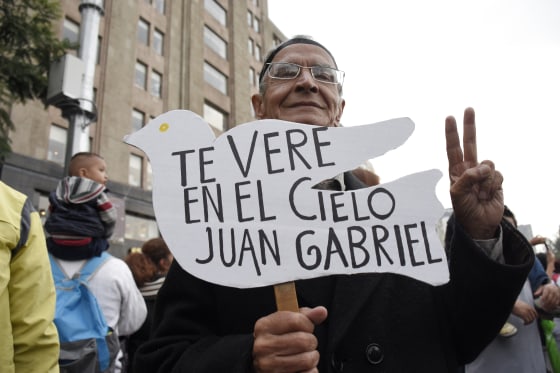The images of hundreds of thousands who paid their final respects to the late Mexican singing-songwriting superstar Juan Gabriel make the scene reminiscent of that of the funeral of a head of state. But that is just how beloved “El Divo de Juárez,” as he is known to his cheering audiences, is to millions.
To many of his mournful fans, Juan Gabriel is as one of his most iconic songs is named, an “Amor Eterno, an “eternal love.”
Anywhere between half a million to one-million fans made the pilgrimage to Mexico City’s famed Palacio de Bellas Artes, or Palace of Fine Arts, Monday and Tuesday to honor their musical hero and walk by an urn holding his cremated remains.
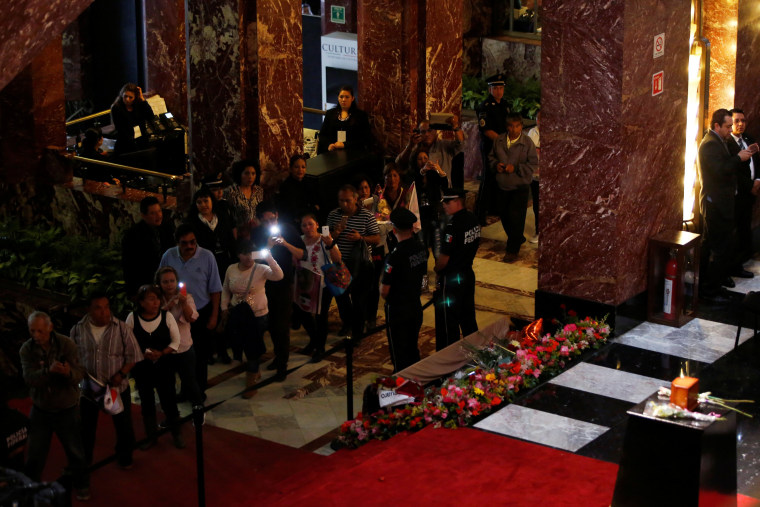
Notable Mexican musicians such as Ana Gabriel [no relation], Pablo Montero and others performed before the ashes of their late friend. Some ten screens were placed outside Bellas Artes so that fans not inside could partake in the performances of Mexico’s pop and mariachi music.
RELATED: Fans Mourning Death of Acclaimed Singer Juan Gabriel
The outpouring of love by such a multitude of fans at Bellas Artes was greater than ceremonies held for such legendary Mexican figures such as literary giant Octavio Paz, beloved comedian Mario Moreno “Cantinflas,” and iconic actress of Mexico’s cinematic golden age, María Félix.
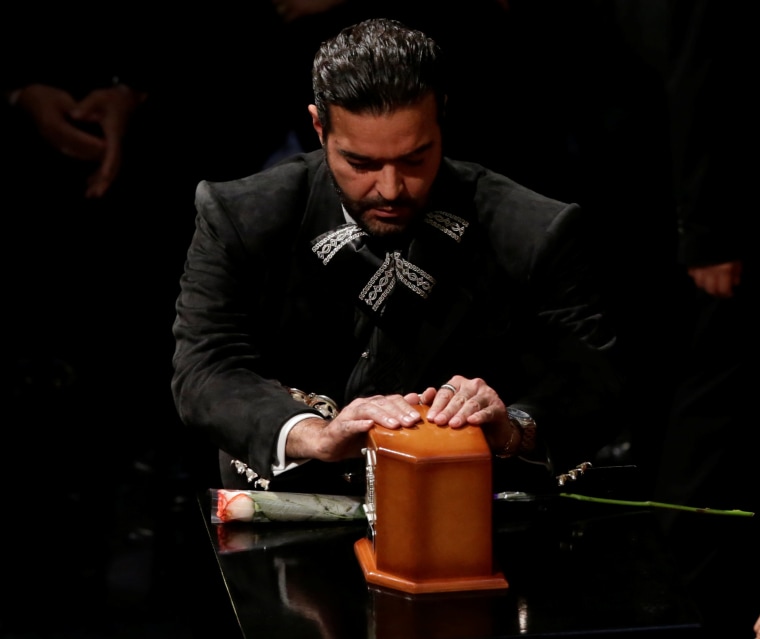
This ceremony for Juan Gabriel in Mexico’s pantheon of culture would most likely have been unthinkable when he began his career in the 1970s; and yet by 1990, Juan Gabriel became the first pop artist to perform in this exalted space previously reserved for classical musicians.
The concert of his pop and mariachi hits was a sold-out one, the live album an instant sensation, and the performance sealed his status as one of Mexico’s brightest stars and breakers of barriers.
As Telemundo’s Ingrid Barrera describes so eloquently, “Juanga,” one of his many monikers, “broke down social barriers because he brought sequins to mariachi music in a country of machismo.”
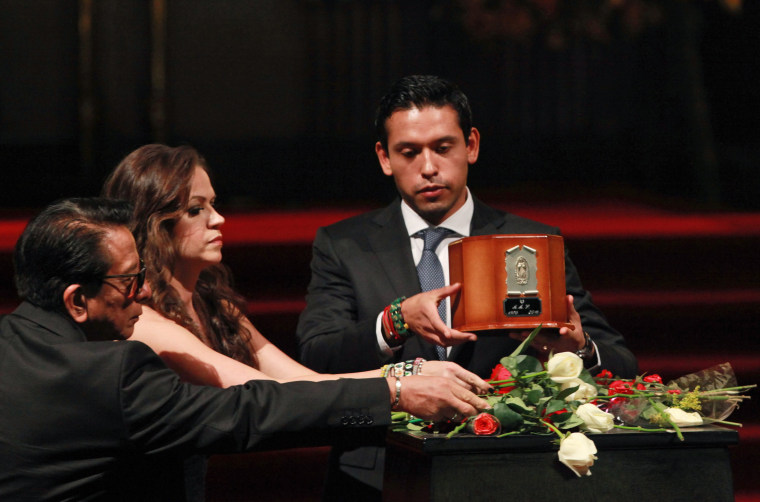
Juan Gabriel became famous for lyrics that could touch the hearts of one and all; young, old, working-class, upper-class, urban and rural. He sang fiercely yet sometimes sweetly with his iconic voice and danced and dressed with an exuberance never previously exhibited by male musicians in Mexico in the 1970s.
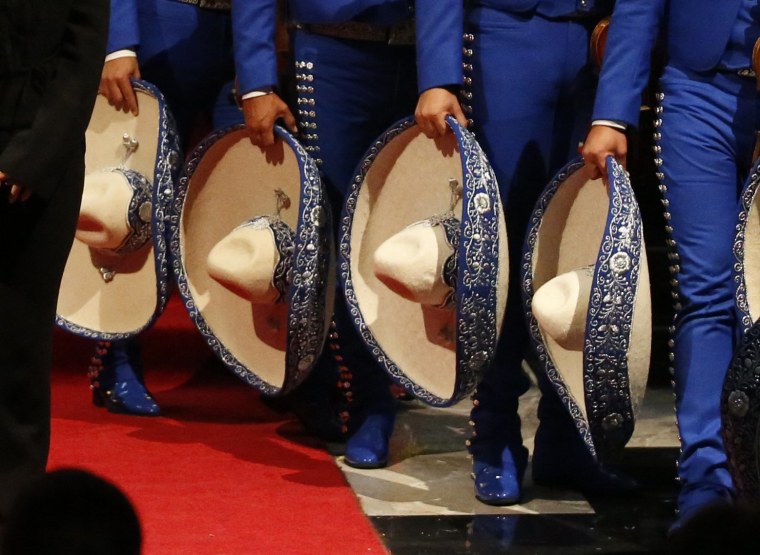
Mexican singer Alejandra Avalos, who performed at the ceremonies held in honor of Juan Gabriel, told Telemundo that “to me he was the greatest idol our country has ever brought forth, at the level of an Elton John.” And yet, the comparison to Elton John doesn’t quite encapsulate the status Juan Gabriel achieved in Mexico and the Spanish-speaking world to many fans and music critics we have talked to; they point to a mix of Elton John, Elvis Presley, a Tom Jones, but in the end Mexico’s inimitable Juan Gabriel.
Juan Gabriel to many was indisputably an “amor eterno.” Gonzalo Morales, a Mexican publicist Telemundo spoke to, said that “everyone can relate to ‘amor eterno' with the loss of a loved one, it’s not the same with a movie by Cantinflas.”
For many fans throughout Latin America and the U.S., Juan Gabriel spoke straight to the heart with his lyrics.
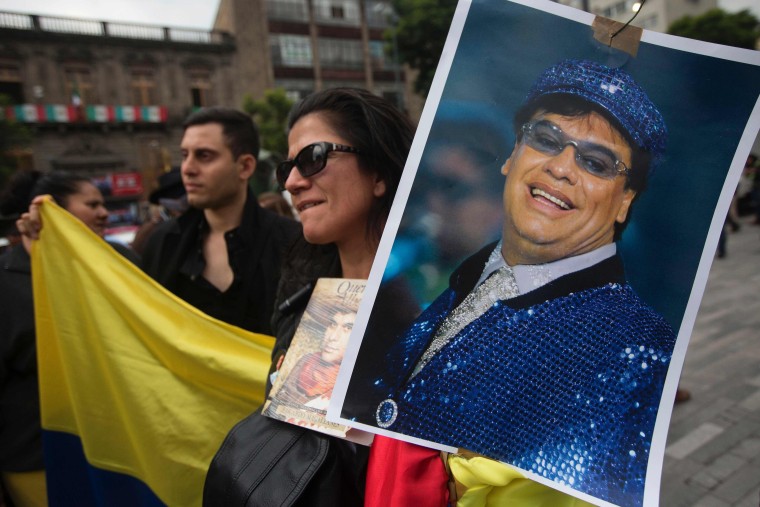
One such fan, Filiberto García, told Telemundo he drove three hours from the state of Veracruz and got time off work to be present at the final goodbye.
His remains were flown to Mexico City, where thousands of mournful fans lined the streets for the funeral procession to Bellas Artes, from his hometown of Ciudad Juarez.
In that border city, Juan Gabriel was the subject of legend. He arrived there as a young child from his native Michoacán state, in central Mexico. His mother was a housekeeper, he spent most of his youth in a shelter for underprivileged children, and yet managed to achieve stardom in a country with few chances at climbing the socioeconomic ladder.
TELEMUNDO VIDEO: Bellas Artes Recibe a Fans de Juan Gabriel
Once he achieved fame and fortune, Juan Gabriel opened an orphanage to help border children like himself. Some of those children, now adults and musicians themselves, paid homage to him in concerts in Juan Gabriel’s honor.
Félix Rodríguez, who first went to the orphanage as an eight year old, told Telemundo that some of the kids he knew at the orphanage are now “engineers, accountants, even architects.”
To so many Mexicans and lovers of his music the words to his “Amor Eterno” could not be more apt.
“Cómo quisiera, qué tu vivieras, qué tus ojitos jamás se hubieran cerrado nunca y estar mirándolos. Amor eterno e inolvidable.”
“How I wish that you lived, that your eyes had never closed and to be looking at them. Eternal and unforgettable love.”
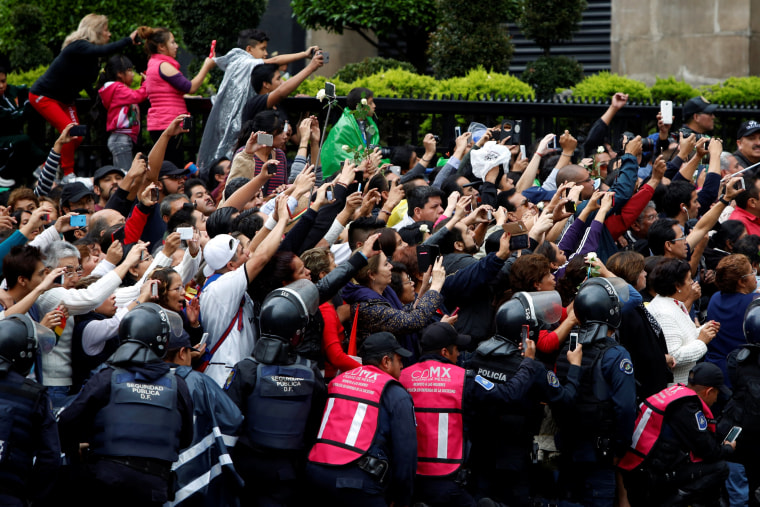
On Wednesday, Juan Gabriel’s remains will be flown to his residence in the border city of Ciudad Juárez where he spent most of his childhood and first made a name for himself.
There are talks of converting the home--where his mother once worked as a housekeeper for previous owners—into a Mexican “Graceland.”
Juan Gabriel died in Santa Monica, California on August 28th of a heart attack, at age 66. He was in the midst of a U.S.-Mexico tour, having just performed two days prior at the Forum in the Los Angeles area.
Noticias Telemundo’s Ingrid Barrera’s reporting in Mexico City and Raúl Torres and Magali Ayala’s reporting in Ciudad Juárez, Mexico contributed to this story.
